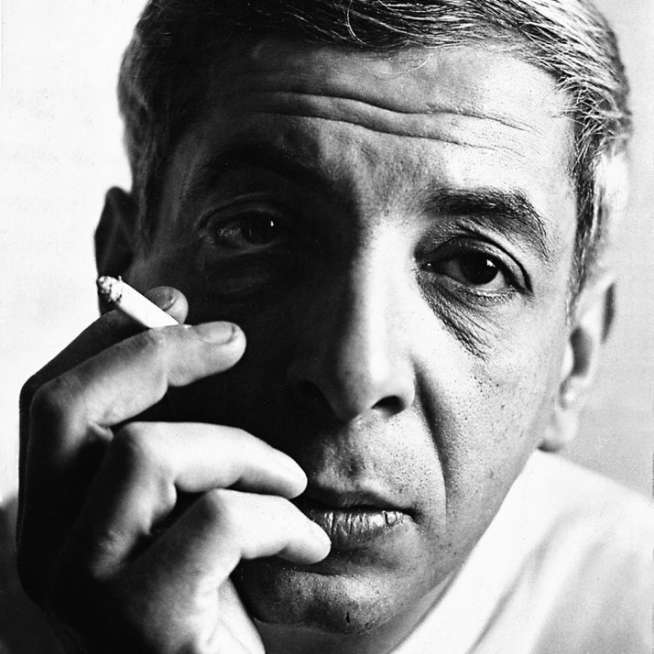PHILIP GLASS TURNS TO THE SONG
By STEPHEN HOLDEN
What is a song? In order to be called a song, must a piece of music have a recognizable melody? Philip Glass's often hauntingly ethereal ''Songs From Liquid Days'' (CBS Masterworks 39564; album, cassette, compact disc) is a record that raises such questions. After many listenings, one can hear the textures of the music resonate in the mind and recall many of the lyrics by Mr. Glass's four collaborators but still not be able to call up more than a few snatches of melody. Yet Mr. Glass specifically designates as songs this sequence of vocalized poems performed mostly by ''pop'' singers.
''Songs From Liquid Days'' is also an interesting example of how a composer's style can dictate lyrical tone and subject matter. In creating this cycle, Mr. Glass enlisted as lyricists four of New York's most respected pop songwriters with poetic leanings - Paul Simon, Suzanne Vega, David Byrne and Laurie Anderson. On their individual records, these four have highly distinctive literary personalities. Mr. Simon's lyrical style interweaves powerful surreal images with a vestigial rock and roll slanginess and whimsy. Miss Vega freezes hot emotions in miniature, precisely detailed still-lifes. Mr. Byrne's nervous, fragmentary observations are infused with a sense of crisis as they view the human predicament from multiple perspectives. Laurie Anderson likes to explore the ironic resonances beneath the surface of pop slogans.
But despite these writers' varying points of view and styles of diction, the lyrics of ''Songs From Liquid Days'' might almost have come from same hand. Or at least the composer treats them so similarly that the authorial voices blend into one. Mr. Glass characteristically subverts the narrative implications of a lyric by setting the words in short, arbitrary bursts that ignore the dynamics and inflections of colloquial speech. The album's several guest vocalists perform in the oratorical, unmodulated manner of the singers in a Glass opera, the object being to achieve an overall seamlessness of tone that is supposed to be more profound than conventional expressiveness.
The album's six songs are short, oracular reflections on time and love, with imagery that explicitly evokes mystical connections between people and objects, the living and the dead, and portrays dreams as portholes into eternity. The composer has sequenced these reflections into a voyage that begins with mysterious apprehension and culminates in ecstatic affirmation.
The cycle begins with Paul Simon's ''Changing Opinion,'' a mock-solemn meditation on the possible sources of an electrical hum in a room. It could be anything from distant ancestral voices to prayers in a foreign language, Mr. Simon muses. A song about hearing, ''Changing Opinion,'' serves as a formal introduction to a cycle that is about cosmic perception. But as performed by the pop-soul singer Bernard Fowler, the song becomes slightly silly, since Mr. Fowler's gruff, earthy voice communicates aggression rather than quiet receptivity.
The theme of attunement quickly gives way to revelation in two songs with lyrics by Miss Vega. The narrator of ''Lightning'' is awakened by ''a blinding bolt of sleeplessness'' into an apocalyptic apprehension of a great fire that leaves her ''in the ashes of time, burned away.'' In ''Freezing,'' a similarly dread-filled world-view invades an elliptical he-said-she-said dialogue. ''Lightning,'' the record's most hard-driving song, demands the technique of either a Wagnerian soprano or a gospel virtuoso. Unfortunately, the pop-soul singer Janice Pendarvis simply cannot effectively soar above the twittering full-tilt gallop of the Philip Glass Ensemble. And Linda Ronstadt's performance of ''Freezing,'' backed by the Kronos String Quartet, fails to match the conversational clarity of Miss Vega's lyric. Miss Vega's own cool, vibratoless alto would have suited the song better.
Things improve markedly on side two, in which the voices, instrumentation and poetry mesh into music that is often gorgeous and at times emotionally gripping in the distant, pulsing, music-of-the-spheres way that the finest Glass tends to be. David Byrne's lyrical companion pieces, ''Liquid Days'' and ''Open the Kingdom (Liquid Days, Part Two),'' contrast images of earthly and celestial love in strikingly different literary styles. The lyrics for the first song speak of ''desire, blood and sleep'' and a love that ''takes its shoes off and sits on the couch.'' This physical, everyday world is juxtaposed with another realm of pure spirit, of ''being in air'' and ''losing our way.''
Mr. Byrne's ''Open the Kingdom'' resolves the distance between the commonplace and the mystical in a Zen-like lyric whose abbreviated phrases imagine death as a rush into eternity in which sounds become words - a ''distant roar, turning to speak, turning to hear.'' Laurie Anderson's lyric for the final song, ''Forgetting,'' brings back the images of listening and sleeplessness from Mr. Simon's ''Changing Opinion'' and Miss Vega's ''Lightning.'' It incorporates them into a prayer that allays mortal anxiety with a repeated litany of heroic human qualities: ''bravery, kindness, clarity, honesty, compassion, generosity, dignity.''
The performances of these three songs are incandescent. In ''Liquid Days,'' the Roches' pure, high harmonies pour through the instrumental texture like beckoning rays of sunlight. Douglas Perry, the masterful tenor who played Gandhi in Mr. Glass's opera, ''Satyagraha,'' sings ''Open the Kingdom'' in a voice that crackles with holy fire. And in ''Forgetting,'' the Roches' angelically harmonized recitation of noble human aspirations, answering Linda Ronstadt's delicately frayed portrayal of an anxious insomniac, suggest a universe in which all prayers are heard and answered with affirmatives.
But with all its charms, ''Songs From Liquid Days'' is still minor Glass. In the composer's sweeping scores for ''Einstein on the Beach'' and ''Satyagraha,'' the breadth and sustained urgency of the music express an enlightenment that is the fruit of rigorous spiritual discipline and unending heroic struggle. Instead of spreading out a visionary feast, ''Songs From Liquid Days,'' offers only tantalizing bonbons.
